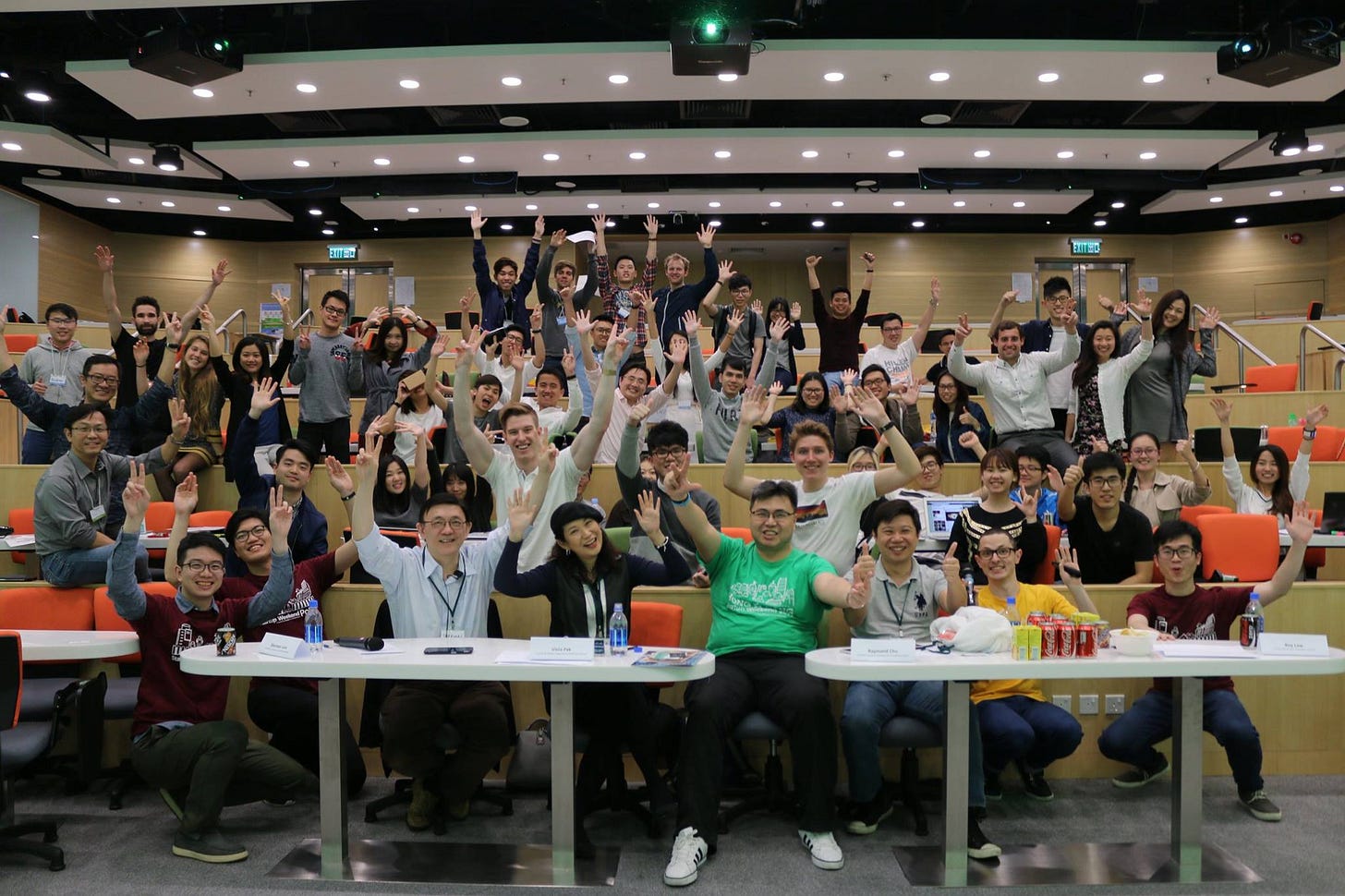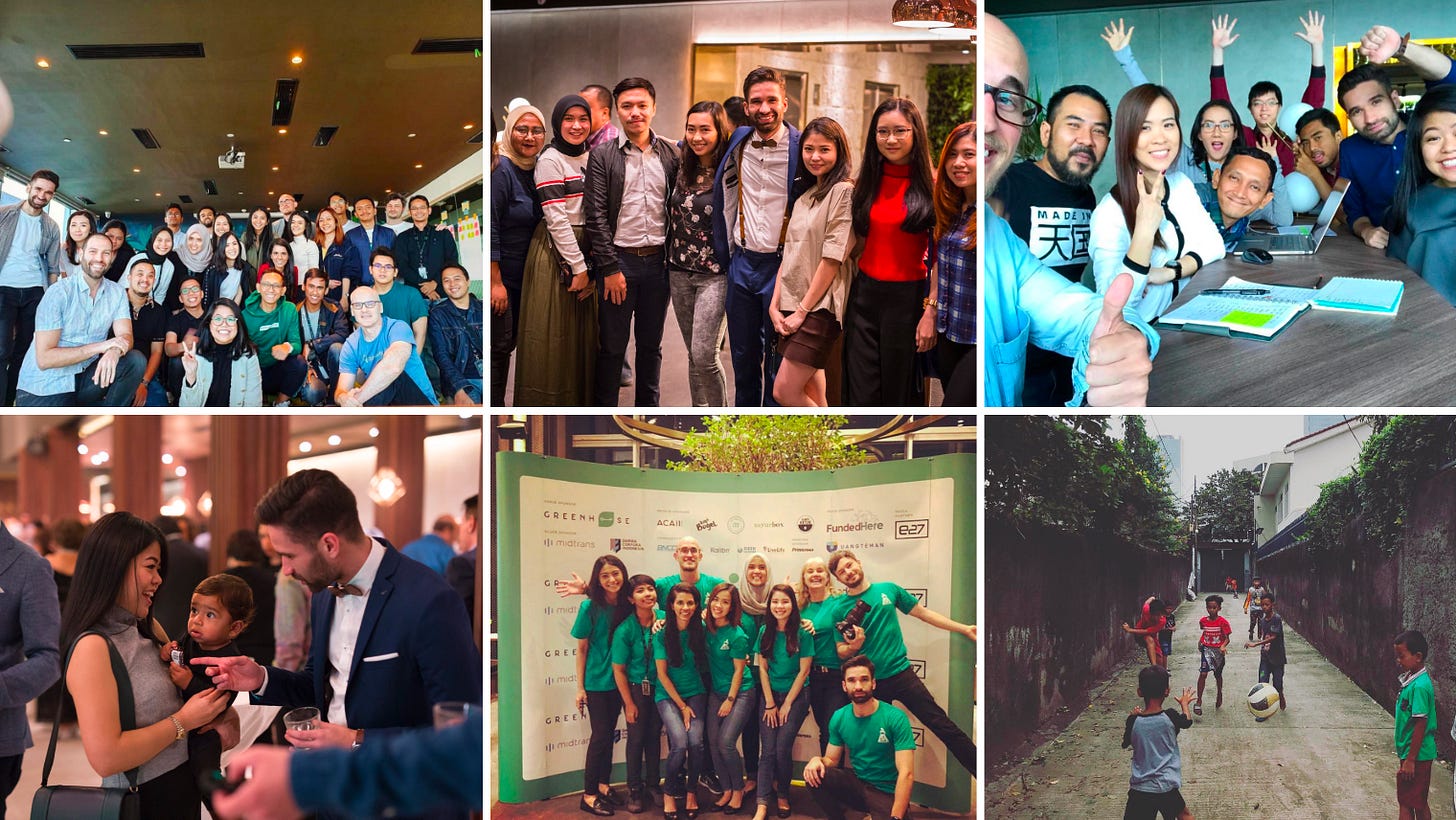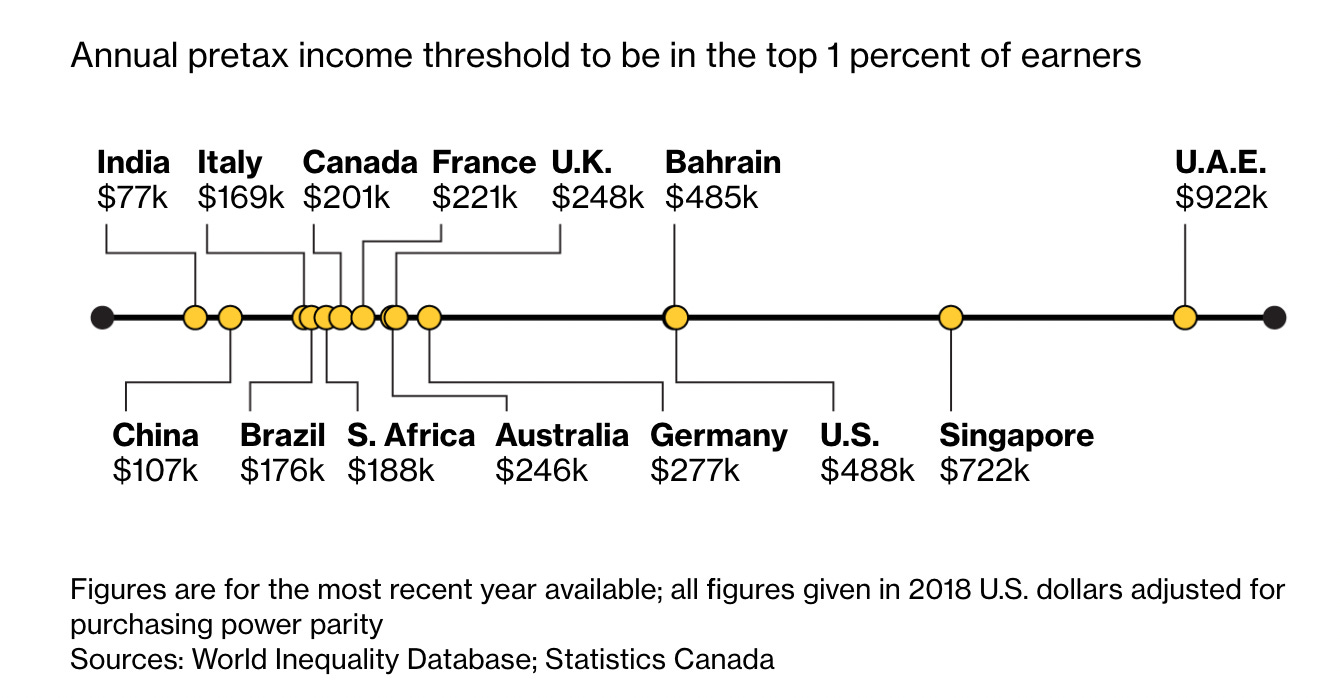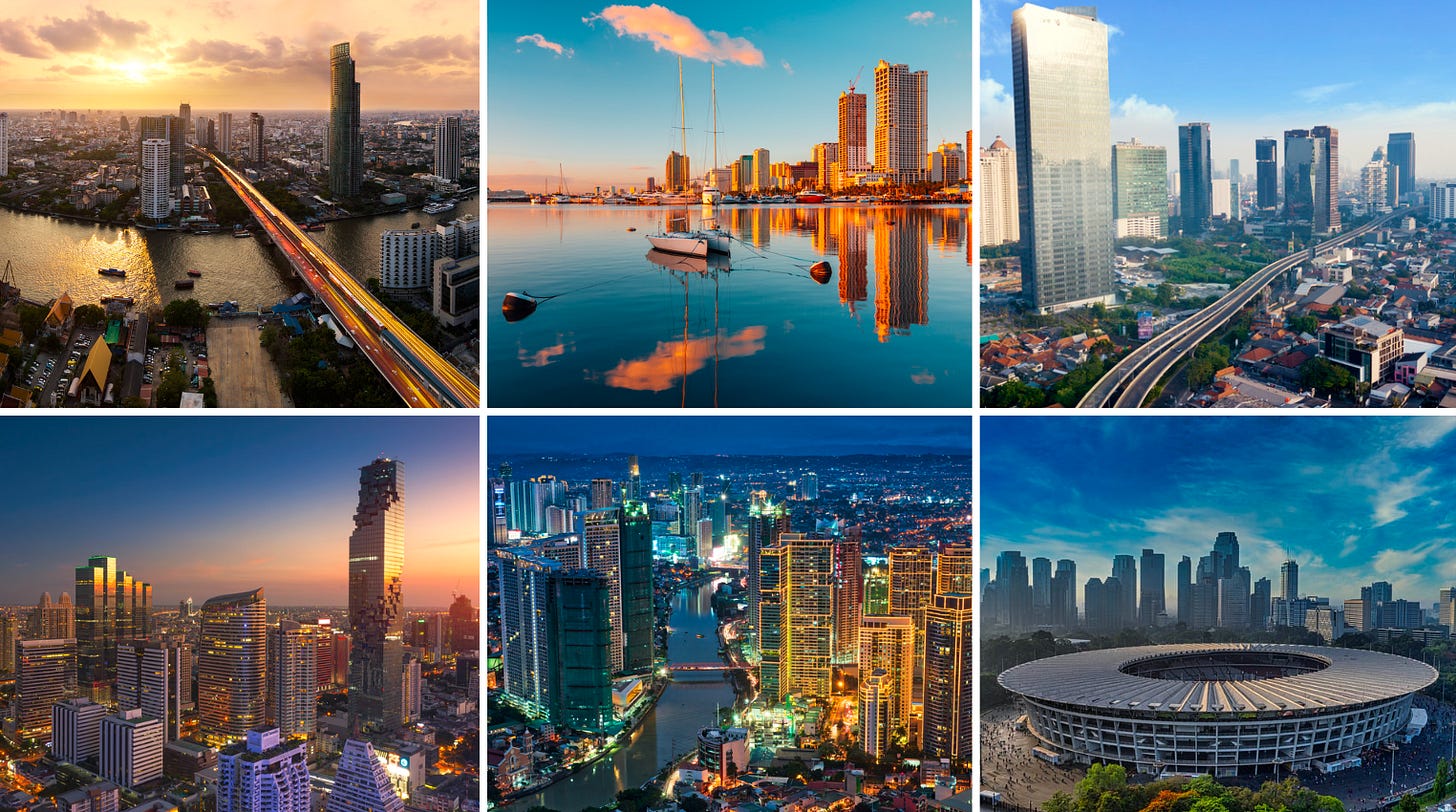My journey over the past decade has taken me to a variety of countries around the world, including Indonesia, Malaysia, Taiwan, Thailand, India, and the Philippines. Countries that are often referred to as "emerging markets."
My decision to leave Europe for Southeast Asia has surprised many of my family and friends. Yet, my adventures in these up-and-coming markets have proven to be some of my life's most rewarding experiences.
In turn, I believe that the image of these markets is often outdated and can be misleading without experiencing them firsthand.
Most people visit such countries only for holidays. Short-term travel can provide some insights, but it's not enough. The longer you stay in a new location, the more you understand how it operates. For example, I have lived in Indonesia for four years but still learn new things about the country. The more I immerse myself in the local culture, the more I understand it.
It's no secret that emerging markets have often been portrayed negatively. Many associate them with economic and political instability, lack of infrastructure, poor living conditions, and lack of safety. While these issues exist in some cases, I believe there is much more to these countries. In fact, I would go as far as to argue that many of these countries have surpassed developed Western countries in various aspects.
In this essay, I will share personal anecdotes and data to offer a different perspective on the exciting opportunities and growth these "ascending" markets offer. I will focus on countries in Southeast Asia where I have lived or worked.
My goal is not to provide a perfect representation of reality but to spark the idea that the ascending world has many opportunities that may not be immediately apparent. Enjoy!
The Journey to Southeast Asia
In 2016, I was completing my Master's degree at Aalborg University, Denmark. For my thesis, I focused on entrepreneurship in Asia vs. Europe. Given that the university had generously provided me with an entire semester to focus solely on writing, I decided to take advantage of the opportunity and travel.
Ever since my first internship in Taiwan three years earlier, I have been curious about the cultural and economic differences between Asia and Europe. Additionally, the topic of my thesis was well aligned. So picking an Asian country for my fieldwork was a no-brainer.
After some research, I picked Hong Kong due to its dynamic startup ecosystem and applied for a scholarship. My application was approved, to my delight, and I began planning the trip.
Hong Kong was everything that I imagined, bustling, forward-thinking, and entrepreneurial. It exceeded my expectations, and I had a great time there.
As I was about to finalize my field research at the Hong Kong Polytechnic University, I remembered that I had a friend living in Bali, Indonesia. So I contacted him and asked if I could visit and work on my thesis from the "Island of Gods." He happily agreed, and I arranged to visit, planning to write the remaining part of my thesis from Bali.
Writing my Master's thesis from the beautiful island of Bali was a great experience. The abundance of activities and the stunning natural surroundings made it a very enjoyable workplace. Additionally, I was able to upgrade my living situation significantly, as my budget allowed me to rent a lovely villa with a pool, which was a far cry from the cramped, tiny room I could have afforded in Denmark. All in all, my time on the island was a truly memorable part of my journey to Southeast Asia.
After submitting my thesis, I had to decide on my next steps. I could return to Denmark, where I had been living for seven years, had friends, knew the culture well, held a permanent residence, and could most likely get a well-paid job. Or stay in Indonesia, where I thoroughly enjoyed my short stay but did not know much about the country, did not speak the language, and was 15,000 km away from family and friends.
As you can imagine, I made the obvious choice and took a chance on Indonesia. So I channeled my energy into finding a job, hoping it would lead me down an exciting path.
Shortly after, I was offered to join an early-stage travel startup as their Head of Marketing. The opportunity was exciting, but it came with a catch: I would have to relocate from Bali to Jakarta.
Back then, I didn't know much about the capital of Indonesia beyond what I had heard from locals in Bali who had previously lived in the city. They all had moved to Bali for a better lifestyle and had spoken negatively about Jakarta. In addition, I kept hearing stories about how congested, crowded, polluted, and busy Jakarta is. Slowly, I began to feel uncertain about my decision to move there, but the deal was already done, and I was expected to relocate in a few weeks.
Despite my growing unease, I tried to keep an open mind and hoped that my perceptions of Jakarta would change once I arrived. However, the negative stories I had heard continued to weigh on my mind. I couldn't shake the feeling that I had made a mistake in agreeing to move to the city.
So, when the day finally arrived, and I landed in the bustling capital of Indonesia, my expectations were as low as they could possibly be. I wasn't sure what to expect, but I was certain I wouldn't enjoy my time in Jakarta.
However, something unexpected happened as soon as I stepped off the plane. Despite my low expectations, I was pleasantly surprised by the city and the people who lived there. Slowly but surely, my attitude shifted, and I started seeing Jakarta in a new light.
My first impression upon arriving in Jakarta was that the city center was surprisingly modern, with skyscrapers dotting the landscape. This was not what I had expected based on the negative stories about the city.
Another pleasant surprise was the convenience of ordering nearly anything online, from transportation to food and even massage at home. This level of ease and accessibility was something I had not experienced in other cities.
The kindness of the locals was another aspect that pleasantly surprised me. It's often said that the bigger the city, the less friendly the people are. This is because maintaining a sense of community in a densely populated area can be difficult. However, Jakarta was an exception to this rule, as most people I encountered were quite friendly. This, combined with the modern amenities and convenience of the city, made my initial impression a positive one.
As I settled into my temporary accommodation and began exploring the city, I quickly discovered the vibrant nightlife. It wasn't hard to make friends, and I enjoyed the city's social scene.
A week after moving to J-town, I took the lead in running our marketing efforts inheriting a team of about ten people. Shortly after that, I realized the benefits of doing business in a city with a population of over 10 million people. My first paid social media campaigns were more successful than anything I had ever done in Denmark!
Of course, it wasn't easy, and I had to work my ass off to achieve these results. Yet, the low purchase power of most people in the city didn't seem to be as big an obstacle as I had imagined. In fact, one of my campaigns got so much traffic that it broke our website several times ¯\_(ツ)_/¯
I will make one final argument on why places like Jakarta have an undeservedly poor reputation and then rest my case.
One of the most significant advantages of living and working in Southeast Asia, particularly in places like Jakarta, is the abundance of opportunities. Despite facing many challenges in infrastructure, pollution, transportation, and more, these countries provide a wealth of opportunities for driven people.
In my own experience, I have found that merit is rewarded more generously here than in many other parts of the world. This has allowed me to quickly climb the ladder in my career, starting as a Head of Marketing straight out of uni and eventually becoming Chief of Staff at a series-C startup.
Looking back at all those experiences and conversations with locals, I cannot help but feel that fast-growing countries like Indonesia come with a strong sense of optimism. Everywhere you go, you can feel a sense of excitement and enthusiasm about what the future holds. There is a real sense of energy and determination in the air. I find that this positivity is infectious, and it has definitely rubbed off on me.
While living in Southeast Asia has certainly had its ups and downs, I have to say that overall, my experience has been positive. The cultural diversity, economic growth, and entrepreneurial opportunities in these emerging markets have been truly eye-opening. My stay in Asia has allowed me to grow personally and professionally in ways I could have never imagined.
However, I realize that the experience shared in this essay is just one side of the story. There are certainly challenges and difficulties that come with living in countries like Indonesia. But despite these challenges, I believe these countries have much to offer. From the vibrant cultural scene and the friendly locals to the enormous potential for entrepreneurial growth and personal development. There are many reasons to be excited about the future of Southeast Asia.
Next, I will share data and findings from third-party studies highlighting these countries' exciting potential to provide a more balanced and accurate portrayal.
Economic Growth: Southeast Asia VS the Developed World
Looking at economic growth is essential when assessing the potential of a country because it can provide insight into the overall health and development of the economy. A growing economy typically indicates increased productivity, innovation, and wealth, which can lead to more opportunities for individuals and businesses.
Southeast Asia is among the fastest-growing regions in the world, with economic growth reaching 5.5% in 2022, according to the Asian Development Bank (A.D.B.). Despite a concerning macroeconomic backdrop, various factors will likely continue to pull in investment to the region. The International Monetary Fund (I.M.F.) forecast for global growth was 3.2 percent for 2022 and 2.7 percent for 2023, meaning Southeast Asia is still forecast to grow substantially faster than the worldwide average.
In contrast, developed markets are growing at a slower pace. The United States, the world's largest economy, is expected to grow by 2.1% in 2022 and by 1.6 percent in 2023, then decline further to 1.1% in 2024. The Eurozone, comprised of 19 European countries, grew by 3.5% in 2022, but in 2023, is expected to grow only by 0.8%, followed by 1.4% in 2024.

Clearly, that’s just one metric, and there are various ways to slice and dice what economic growth means, but I think countries like Indonesia are often referred to as fast-growth markets for a reason.
The Southeast Asia Advantage: Financial Independence and Lifestyle Upgrades
As a young professional, I have always been interested in improving my quality of life and increasing my wealth. The most popular methods for increasing wealth are earning more or reducing expenses.
Earning more is hard but typically the preferred choice. Reducing expenses means that you need to sacrifice today for tomorrow, which does not resonate with many folks.
Yet, in countries like Indonesia, the cost of living is significantly lower than in developed countries like the U.S. and U.A.E., while the value for money is considerably higher. This means you can stretch your money further and enjoy a higher quality of life without earning as much as you would in other countries.
A study by Bloomberg found that it takes significantly less annual income to be considered part of the top 1% in wealth in countries like most Southeast Asian states. This means that you can achieve financial independence more easily in the region. In turn, that would allow you to focus on your passions and goals rather than constantly trying to make ends meet.
The middle/upper class in Southeast Asia often have access to support through maids, drivers, and other workers to handle mundane tasks like laundry, cleaning, and driving.
It can be difficult in Europe to afford these helpers without being incredibly wealthy. Yet, in Southeast Asia, this level of support is more accessible and can free up time to focus on what's important to you.
Startups Fueling Progress: The Ripple Effect of Southeast Asia's Fast-Growing Tech Sector
Since I have only had exposure to the tech sector across the region, it’s hard to speak about other verticals. So let me start by saying that the digital economy of Southeast Asia has been growing steadily, resulting in a wave of well-funded startups.

Startups, in turn, have the power to transform economies and societies by disrupting traditional industries, creating new markets, and driving innovation.
I have seen this firsthand with companies like GoJek and Grab, which have revolutionized the transportation sector and created millions of new jobs.
Such companies attract substantial capital. Subsequently, that capital circulates throughout the economy in the form of new employment opportunities. As startups expand, they typically recruit additional staff to support their operations. These newly created positions not only provide income for the individuals occupying them but also contribute to the region's overall economic development.
Moreover, startups can potentially stimulate competition and reduce consumer prices. When a startup introduces a novel product or service to the market, it can shake up the existing landscape and compel incumbent companies to reassess their offerings and pricing strategies. This competitive environment can result in lower consumer prices, enabling individuals to afford goods and services previously out of reach.
Lastly, the success of startups can also facilitate wealth distribution via investments and exits. As startups grow and mature, they might seek further funding from investors to scale their operations. When a startup successfully exits through an acquisition or an initial public offering (I.P.O.), investors, founders, and employees can potentially reap significant investment returns. Most of these individuals will likely reinvest in other ventures or utilize the funds to launch their own enterprises. This creates a cycle of upward mobility that elevates large segments of the population from the lower to the upper-middle class or even to the top 1%. By offering opportunities for individuals to invest in and benefit from the success of startups, the growth of these companies can help distribute wealth more evenly across society.

That’s why I believe the growth of startups can lead to wealth distribution across various societal layers and thus further grow the economies of Southeast Asian markets.
Southeast Asia's Skyward Ascent: Economic Growth and Inspiring Optimism
The fusion of economic growth, a flourishing startup ecosystem, and an overall affordable cost of living create a unique circumstances. As a result, a sense of optimism pervades the region, with individuals investing in education, launching businesses, and experiencing a lifestyle beyond their grandparents' imagination.
The infrastructure constantly improves, with new highways and skyscrapers being built rapidly. This growth is reflected in the thriving construction sector, which naturally leads to optimism about what the future holds.
Take Jakarta, Manila, and Bangkok as examples of cities that have been transformed in the past decade. The growth of their economies has been reflected in the modern architecture of these cities, which includes a proliferation of skyscrapers. These towering buildings' presence can give the cities a surreal and futuristic feeling.
Despite numerous challenges, including poverty, inadequate infrastructure, pollution, and some of the world's most congested traffic, the infectious optimism of the locals prevails. People are excited about the future, and it's difficult not to share in their enthusiasm.













I'm located in Mexico and reading your content lets me discover so many fascinating things about the Southeast Asian startup and economic environment. Thanks for the well-thought-out and enjoyable posts!
Really enjoyed your perspective on SEA and moving to Jakarta! Looking forward to more posts